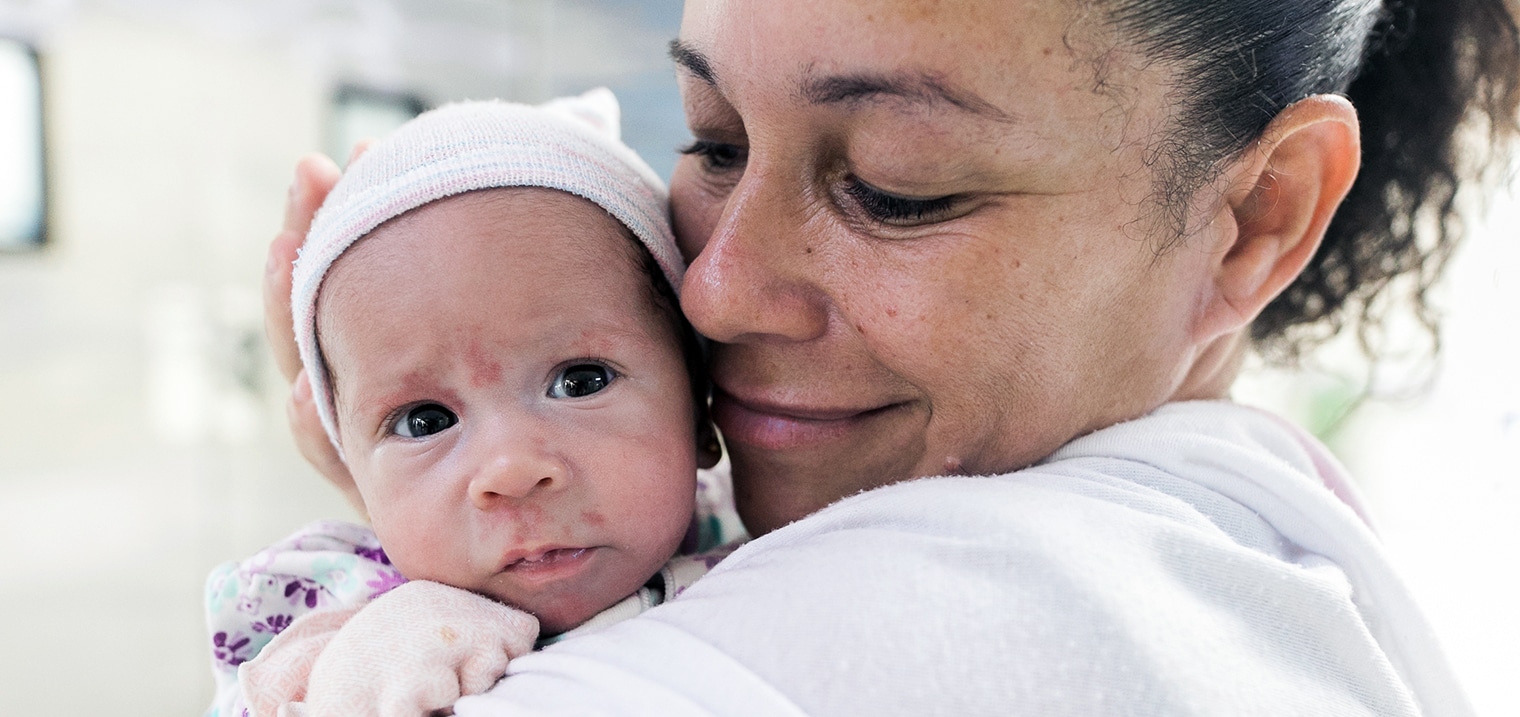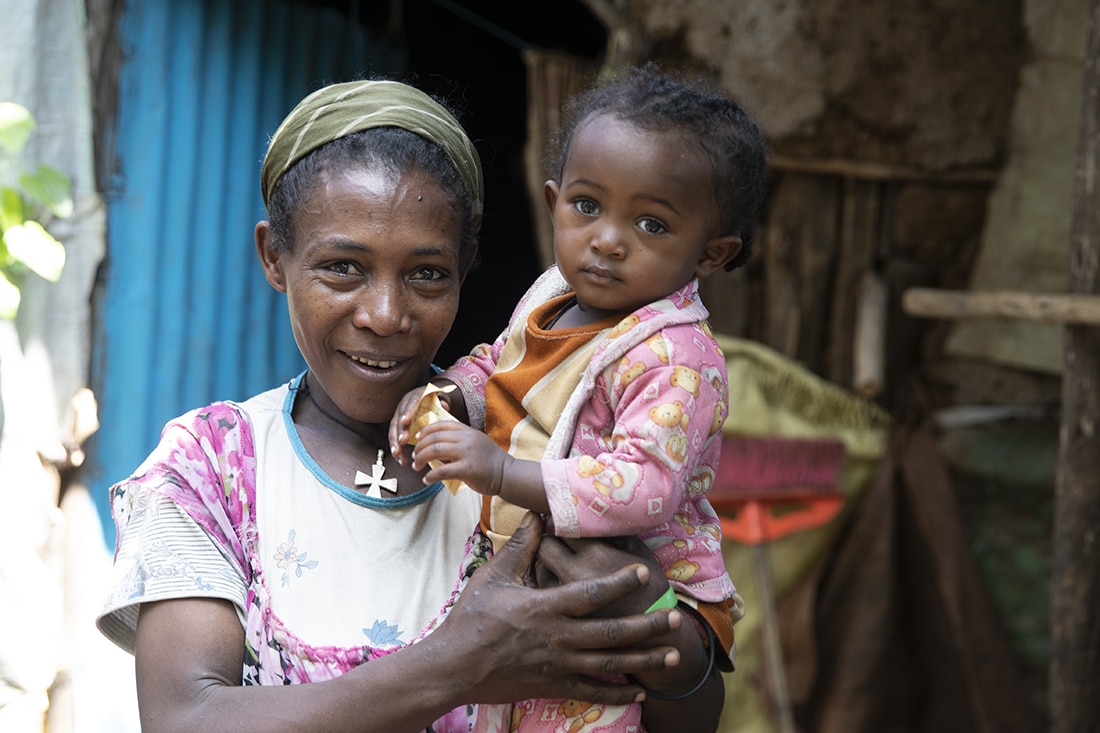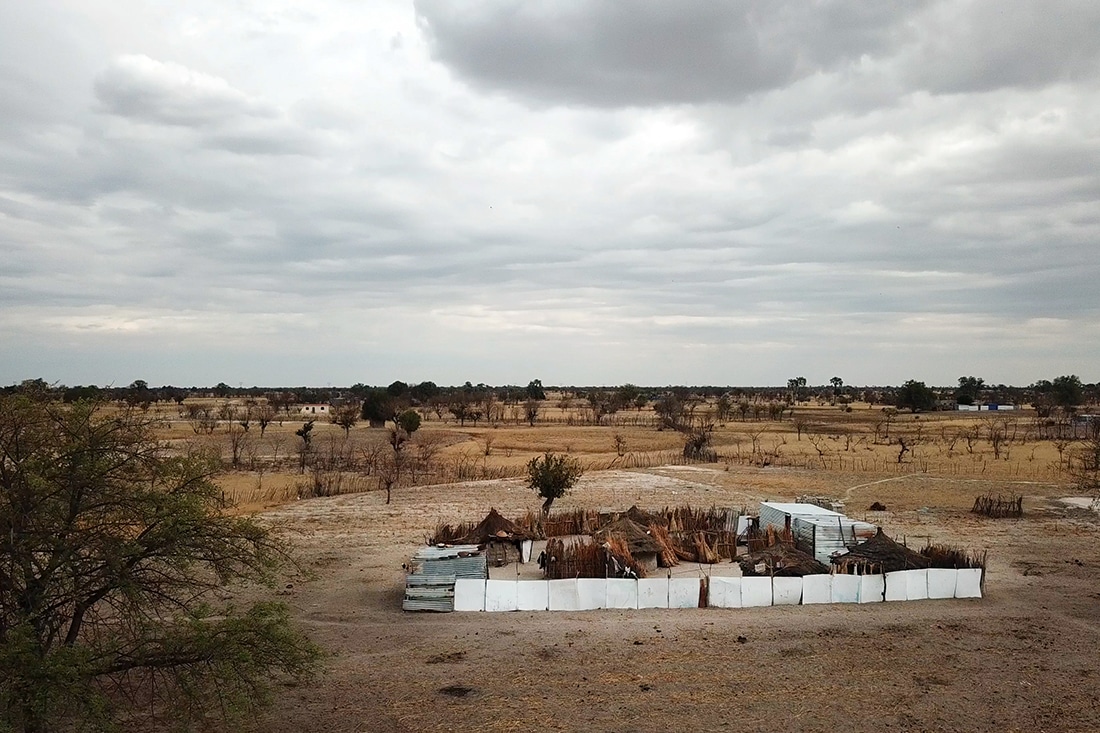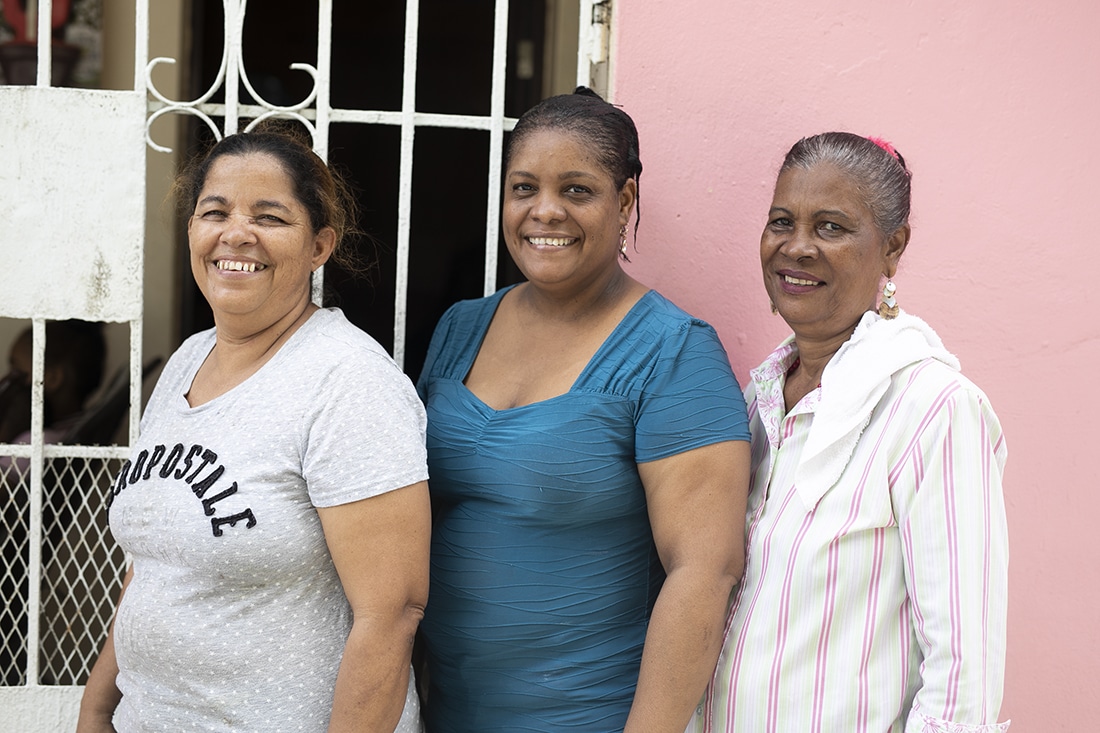
Mothers Make The World Go ‘Round
Every day, our work impacts the lives of countless mothers around the world. Meet a few of the women who particularly inspire us and learn more about how they make their worlds go ‘round.
Semira
How a mother’s compassion and empathy lifts and inspires others
Semira is a devoted 35-year-old mother to 2-year-old Kidist in Ethiopia, but her nurturing personality extends beyond her own family. Semira is also a volunteer community resource person with Project HOPE, walking around her village with her toddler strapped to her back, offering a listening ear and gentle guidance to those who need help.
She is especially sensitive toward those who think they may be HIV–positive. Her empathy is real and she feels compelled to help others overcome hardship the way she has.
“I became a community resource person with Project HOPE because I was a victim,” says Semira. “I didn’t know that my first husband was HIV–positive. I don’t want other people to experience this. That’s why I go out to the community—to teach others to be aware. I love to see the improvement of people after they get on the medicine and can once again live their day-to-day lives.”


Nora
Because motherhood is limitless
63-year-old Nora is a great-grandmother in Namibia. Although she has already raised 15 children, she is now the sole caregiver to four more: three grandchildren and one great-grandchild. Complicating matters, she and her grandson are both HIV-positive. In order to secure the lifesaving antiretroviral therapy medication they need to survive, each month Nora walks 10 miles to and from the local hospital.
Although life is hard for this multigenerational family, Nora’s maternal instinct remains intact regardless of her age. She remains steadfast in her loyalty to her family. “It’s not easy to raise grandchildren and great-grandchildren at my age, but there’s nothing that I can do,” says Nora. “I just have to take care of them – myself and God.”
Fortunately, she has allies in Project HOPE’s community health workers and belongs to a support group. “During Project HOPE’s support group meetings, we receive good information on HIV. I am grateful.”


Digna, Yahajira and Graciela
Mothers are a force of nature
“It all started because of the needs of the people in our communities,” says Digna Calderón, a community leader in Los Mina in the Santo Domingo province of the Dominican Republic.
As veteran mothers, Calderón and two other women, Yahajira Feliz and Graciela Alcántara, know how to get things done. Their management and resource-gathering skills easily transferred from caring for their own families to serving their communities.
“People would approach us because they didn’t have money for medicines,” says Calderón. “Some would approach because they didn’t have money to buy a casket after a family member passed away. We knew where to go, what to do. Whether it was contacting politicians, hospitals, whomever – we found out who to contact to get people what they needed.”
After a while, the trio decided to formalize their roles and created three community associations, each woman acting as president of her neighborhood, areas that border one another. They often link neighbors in need with local health facilities where Project HOPE helps provide health services, including maternal, neonatal and child health programs.
“We are the bridges to our communities,” says Calderón. “We want to help connect Project HOPE to the people in our communities who need health services.”


Project HOPE’s work in maternal, neonatal and child health
Approximately 830 women die every day from preventable causes related to pregnancy and childbirth. An astounding 99% of these deaths occur in developing countries. Women in low-income countries don’t receive adequate prenatal care and most of the time births are not attended by skilled health workers.
Project HOPE has worked to improve maternal, neonatal and child health in more than 28 countries since 1985. Our programs focus on sustainably improving care during the most at-risk times in the lives of mothers and newborns — during labor and delivery through the first 28 days postpartum. We provide training to increase the knowledge and build the skills of health-care workers; build partnerships with ministries of health, medical and nursing schools, and training institutions to strengthen health infrastructures; and we engage communities and local leadership to strengthen the continuum of care.
Our work in Sierra Leone is a prime example of this. We establish mother care groups to improve the referral system, build the community’s trust in the health-care system and extend the reach of services from the community to the household level. And in partnership with Sierra Leone’s Ministry of Health and Sanitation, Project HOPE has provided national and district training programs in the care of small and preterm babies. We also established the first two national Kangaroo Mother Care (KMC) units for the care of preterm and low birth weight babies.
Read our story: “Kangaroo Mother Care Can Be a Family Affair”
Our work in Indonesia is another example of our dedication to mothers, babies and children. Despite having the largest economy and being one of the most well-developed countries in southeast Asia, the maternal and neonatal mortality rates are still alarmingly high. Since 2005, Project HOPE has been collaborating with community and government partners to improve access to maternal newborn and child health. Our team of health workers trains doctors, midwives and nurses; and our volunteers work to raise community awareness through workshops and the formation of village committees.
Read our story: “Indonesia’s Maternal Mortality Problem: Training Frontline Workers for Emergency Births”

How you can help
Project HOPE works in more than 25 countries, helping those in need to overcome diseases and empowering health-care workers to save more lives through training and support.